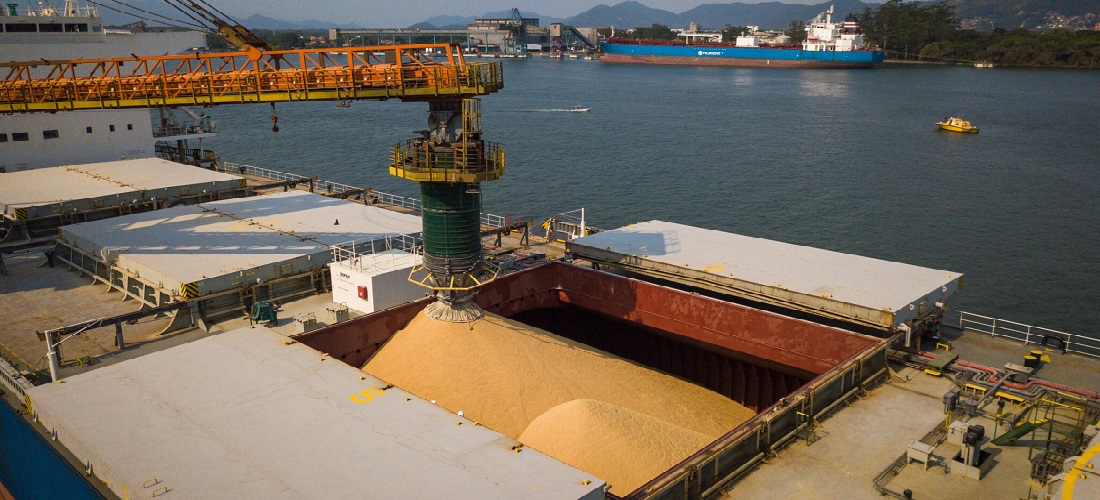
Commodity prices steer agribusiness company fortunes
Jun, 25, 2024 Posted by Gabriel MalheirosWeek 202426
The fluctuating prices of agricultural commodities have had varied impacts on agribusiness companies during the latest financial reporting season. A decline in soybean and corn prices alleviated feed costs, boosting margins for meatpackers, whereas grain producers faced adverse effects. In the sugar industry, the peak of the boom may have passed. Analysts anticipate these trends will persist in future financial statements.
An unexpected development noted by sector analysts was the robustness of domestic demand, which remained strong and is expected to continue throughout the year.
“As we wrap up the season, it’s clear that there has been a relief in margins due to the decrease in grain costs, an anticipated move that could extend further. The strength in domestic demand, however, was unexpected and pleasantly surprising,” stated Leonardo Alencar, head of Agro, Food, and Beverages at XP.
A study conducted by Valor Data, Valor’s financial data provider, analyzed the financial statements of 23 agribusiness companies spanning sectors such as grains, inputs, meat, bioenergy, animal health, storage, and rural properties. The analysis showed that 14 companies posted positive net income, while the remainder reported losses.
Across the board, the grain and input sectors generally faced the most significant losses or declines in profits. The milling industry exhibited mixed results, whereas meatpackers achieved the most favorable outcomes.
Gustavo Troyano, an analyst at Itaú BBA, noted that the standout performers of the financial reporting season were JBS and BRF. He attributed their success “primarily to significant gains in profitability within the chicken industries in Brazil and the United States.”
The chart below shows Brazilian poultry meat exports in containers between Jan 2021 and Apr 2024.
Brazilian Poultry Exports | Jan 2021 – Apr 2023 | TEUs
Source: DataLiner (click here to request a demo)
JBS concluded the first quarter of this year with a net profit of R$1.65 billion, a significant recovery from a loss of R$1.45 billion during the same period in 2023. Alongside its thriving chicken segment, a rebound in nearly all the company’s operations has mitigated the impact of the low cattle supply in the American market. At Seara, JBS’s poultry and pork division, adjusted earnings before interest, taxes, depreciation, and amortization (EBITDA) surged by an impressive 711% compared to the first quarter of 2023.
“Seara’s success was largely due to enhanced management focus, productivity, and yield. This transformation is ongoing and holds further potential,” stated JBS’s global CEO, Gilberto Tomazoni, in a May interview with Valor. He also highlighted the advantages of decreasing costs, particularly the reduced prices for grains used in animal feed.
BRF also reported a net profit of R$594 million in the first quarter. Bolstered by improved margins and a diversification in exports, facilitated by new international sales licenses, the company experienced the best first quarter in its history. This marks a turnaround from a loss of R$1.024 billion in the same period last year.
Mr. Troyano highlighted that the rebound in export prices for chicken meat is expected to further boost margins in the coming quarters. For beef meatpackers, although the price of arroba (a metric unit equal to 15 kilos) remains stable, the lackluster prices for beef exports to China are prompting the industry to explore more lucrative markets.
Echoing trends from the first quarter, Mr. Troyano noted, “Year-on-year declines in grain prices are expected to continue impacting companies like SLC, 3tentos, and Vittia, albeit to varying degrees depending on the specifics of each company.”
This trend has had a tangible effect on SLC: the company’s profit dropped 60.2% from January to March compared to the same period last year, totaling R$228.9 million.
Aurélio Pavinato, CEO of SLC, views the first quarter figures as reflective of the broader challenges facing Brazilian agribusiness this year. “We are experiencing increased margin pressures due to crop failures and declining prices. However, these challenges are part of the business’s natural evolution,” he commented during the release of the financial statements.
Leonardo Alencar from XP noted that grain prices for the 2024/25 harvest have recently increased, and a strengthening dollar is boosting exports. Despite these positive trends, he cautioned that the sector’s fundamentals remain weak due to a global oversupply.
“Grain companies are likely to continue facing compressed margins, and this pressure will extend to input suppliers as well. We hope that producers have taken advantage of the recent uptick in grain prices and favorable exchange rates by selling futures,” Mr. Alencar added.
The input sector was particularly impacted by the diminishing margins experienced by farmers. According to the analysis by Valor Data, all companies within this sector reported either a loss or a decline in profits on their balance sheets.
AgroGalaxy’s first-quarter results were notably affected, with the company recording a loss of R$249.7 million, which represents a 158.3% increase in losses compared to the same period in 2023.
In the sugar-energy sector, financial outcomes vary significantly. Raízen transitioned from a profit to a loss in the fourth quarter of the 2023/24 harvest. Conversely, São Martinho’s profits increased fourfold during the same period, bolstered significantly by court-ordered payments resulting from Copersucar’s lawsuit against the now-defunct Sugar and Alcohol Institute (IAA).
“The peak period for sugar has passed in the mills. While prices may exhibit some volatility, the overall outlook is trending downward,” noted an XP specialist. He anticipates that upcoming financial statements will likely be influenced by various external factors.
Source: Valor Internacional
-
Shipping
Jul, 25, 2022
0
Gov’t to prioritize waterway transportation in Brazil
-
Shipping
Apr, 13, 2022
0
CMA CGM launches new ecological intermodal connections between Southeast Brazil and China
-
Ports and Terminals
Apr, 29, 2022
0
The Port of Antonina is investing BRL 45M in six new barley, malt, and wheat silos
-
Grains
Nov, 10, 2022
0
Argentina wheat harvest slashed to 11.8 mln tonnes, more cuts possible



